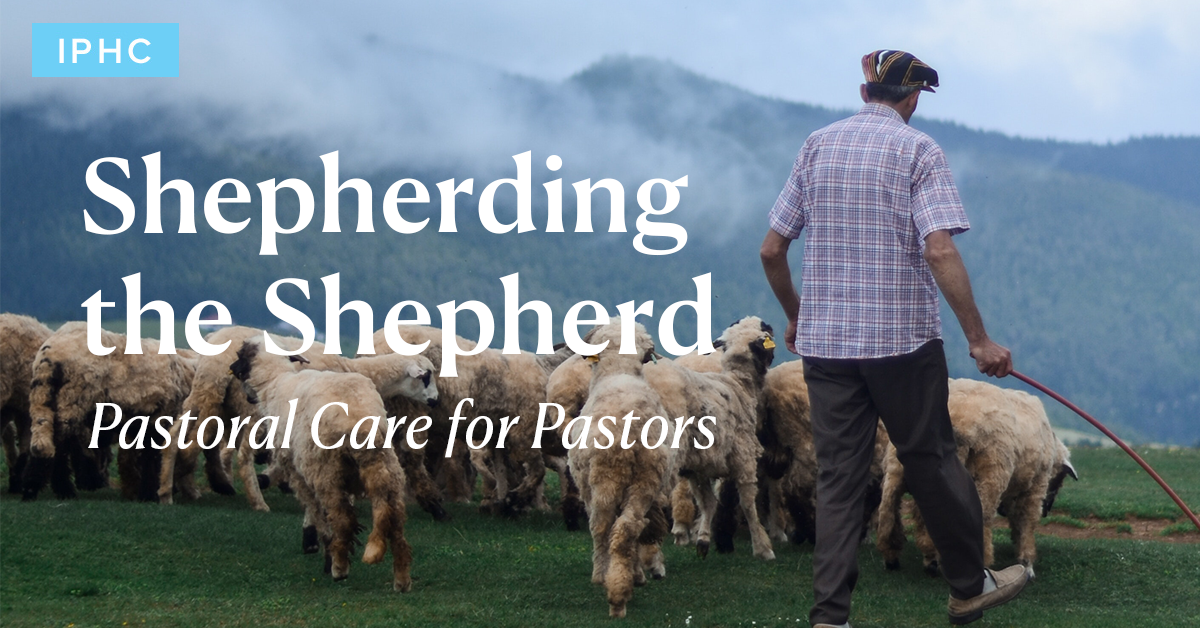When we face a personal crisis, we marshal all our resources to survive and overcome any challenges the crisis involves. But when a state of crisis continues for weeks or months, or when crises come one after another, we can deplete our resources to the point that we cannot continue functioning in a healthy way. If we don’t have some strategy in place to recharge and refresh, burnout will be the best version of what we’ll endure.
This is the second article in a series about about pastoral development in the IPHC. Read the first article, focusing on the Thriving program, here. Several IPHC programs seek to encourage and help pastors grow, including the Healthy, Growing, Multiplying churches initiative; the Thriving throughout the Seasons of Pastoral Ministry program (Thriving); the M Initiative, aimed at pastors of churches growing toward 1,000 in membership; as well as our Clergy Care Team.
Pastors, who take seriously the apostle Paul’s encouragement to “bear one another’s burdens,” the crises can pile up in a hurry–and that’s just in a normal year. When you consider the challenges that 2020 has presented–a global pandemic, racial injustice and conflict, several natural disasters, a deepening social divide, a contentious political election–you might only be able to laugh. (In fact, 2020 has produced Internet memes at a pretty steady and startling rate.) But pastors have had to make weighty decisions for themselves and their churches, providing as much leadership as possible in a fog of disinformation and uncertainty, for 8 months now.
Now, with the election drama continuing, with COVID-19 continuing to impact churches and families, talk of finishing 2020 well has turned to just finishing. By year’s end, the world will have wrestled with a pandemic and other struggles for more than 9 months.
Jimmy Dodd, founder and CEO of PastorServe, says that’s unsustainable without help. He and Dr. Eric Brown recently spoke with Presiding Bishop Doug Beacham and members of the IPHC’s ClergyCare team. The webinar, called Shepherding the Shepherd: Pastoral Care for Pastors, presented ways for pastors to find the strength to continue their ministry during crisis. (Note: PastorServe also provides the content (including some of what’s shared in the webinar) to participating pastors in the IPHC’s Thriving program. PastorServe directs the majority of the content of the second Thriving retreat.)
“Pastors are at the front of the line to give help,” Dodd said, “but at the back of the line to receive help. After about 6 months, pastors hit a wall. They hit a wall.”
According to Dodd, because 2020 seems like a marathon, we should look to marathoners for one part of the answer. Marathon runners expend tremendous energy over 26.2 miles, and they cannot build up enough reserves to find the strength to finish.
“In a marathon, they have these aid stations,” Dodd said. “You physically must stop at these aid stations for water and carbs. I believe God gives us ‘aid stations’ like this in our pastoral journey.”
Dodd went on to outline these aid stations for pastors facing the marathon of ministry.
- Hear Jesus First. “Make sure that the first voice you hear in the morning is the voice of Jesus.” While many voices compete for our attention (the news, social media, and more), hearing what God says about you–His child–first. Lamentations 3 and Mark 1)
- Slow Down with Journaling. “You can type as fast as you can think. You cannot write as fast as you can think.” Writing out your challenges, thoughts, and responses in a journal will force you to slow down.
- Remember Your Primary Ministry: Your Family. “When you leave the church for your daughter’s softball game, you are leaving your secondary ministry for your primary ministry.” Seasons of focus on church ministry happen, but a continuous focus isn’t sustainable.
- Seek Silence and Sabbath Rest. You need space to rest and recharge. Set aside time to be quiet, take a Sabbath seriously, consider taking a vacation, do things just for fun.
- Cultivate Close Friendships. “Satan’s number one lie [to Christian leaders] is, ‘If people really knew you, they wouldn’t like you.'” We need people who know us, and love us because they know us.
- Allow Your Family to Be a Source of Joy. Dr. Eric Brown added that when couples marry, they create a third entity: the family. It’s meant to provide joy to anyone in ministry.
- Cut Down on Social Media. “Social media is not feeding us a lot that’s positive.”
- Create and Connect with a “Triad.” Every Christian leader needs at least two other leaders “that they can share their life with.” Leverage technology to stay in touch, review high and low points, and pray together.
The webinar also included comments and insight from IPHC counselors Dr. Harold Rhoades and Marie McCabe, as well as Pastor Kevin Bordeaux of Thrive Church in Richmond, Virginia. If you would like to speak to one of the IPHC’s ClergyCare team, or to find a counselor in your area, visit the ClergyCare page.




